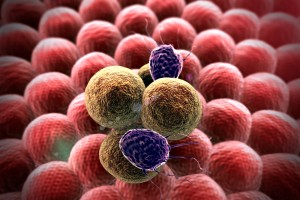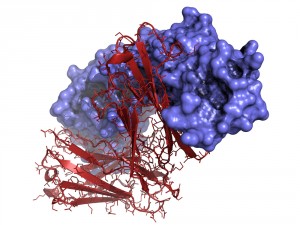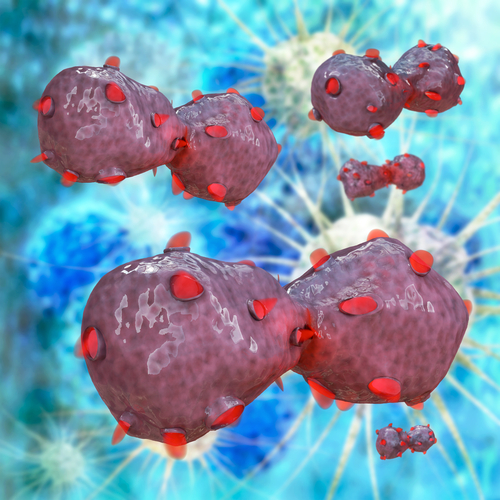 Intrexon Corporation has announced, together with ZIOPHARM Oncology, the signing of an exclusive licensing agreement with The University of Texas MD Anderson Cancer Center for the development of non-viral adoptive cellular cancer immunotherapies.
Intrexon Corporation has announced, together with ZIOPHARM Oncology, the signing of an exclusive licensing agreement with The University of Texas MD Anderson Cancer Center for the development of non-viral adoptive cellular cancer immunotherapies.
These biological technologies have been developed by Dr. Laurence Cooper and Dr. Perry Hackett’s laboratories, which are pioneers in clinical research of new chimeric antigen receptor (CAR) T cell therapies made of non-viral gene integration platforms. When this type of platform is combined with Intrexon’s technology and ZIOPHARM’s RheoSwitch Therapeutic System interleukin-12 elements, it could lead to genetically engineered CAR T cells that allow a controlled cellular expansion and activation, lowering therapeutic side effects and undesired toxicity, resulting in significant therapeutic outcomes.
“Genetically engineering our patients’ immune-system T cells to efficiently attack and destroy cancer cells represents one of the most exciting approaches with curative potential in oncology today,” MD Anderson President Ron DePinho, M.D., said in a press release. “We believe coupling MD Anderson’s unique CAR T cell approach with the powerful technologies of ZIOPHARM and Intrexon will allow us to build T cells that hit cancer harder, with greater precision, under tighter control and with potentially fewer side effects for patients. This agreement ranks as one of MD Anderson’s most substantial collaborations and will provide significant resources to fuel its mission of Making Cancer History®.”
“We are proud to see Perry Hackett’s discovery and development work on Sleeping Beauty, a non-viral DNA plasmid-based gene transfer system, in conjunction with Dr. Cooper’s expertise in immunotherapies, provide this breakthrough in oncology” added Brian Hermann, Vice President of Research at the University of Minnesota.
This collaboration will allow the development and clinical testing of next-generation non-viral  adoptive cellular therapies created from specific cytokines and CARs and controlled by RheoSwitch technology, focusing on both hematologic and solid tumors.
adoptive cellular therapies created from specific cytokines and CARs and controlled by RheoSwitch technology, focusing on both hematologic and solid tumors.
“It is a shared vision to maximize the speed and breadth of multigenic innovation for patients through the use of nimble, non-viral DNA cell manufacturing strategies that can further overcome viral packaging constraints and economic limitations,” Gregory Frost, Ph.D., Senior Vice President and Head of Intrexon’s Health Sector explained in the press release. “Collectively, this will assemble the most advanced set of technologies to empower the strongest adoptive cell therapy pipeline that can drive innovation through multiple horizons and patient populations.”
CAR-T cells are innovative antibody cancer therapies engineered to mimic the functions of a T cell receptor. By recognizing intracellular protein fragments via the MHC-peptide complex, a new type of immunotherapy can be created, where these antibodies can efficiently enter a cancer cell and recognize cancer-associated proteins, mobilizing the immune system to mount a deadly response against the cancer cell.
“The promise of controlled, cell-based immuno-oncology therapy is that we can achieve dramatic, long duration anti-cancer results while keeping patients out of intensive care during treatment. As importantly, we can reproduce these results in a globally scalable and economically viable way,” concluded Jonathan Lewis, M.D., Ph.D., Chief Executive Officer of ZIOPHARM Oncology. “The MD Anderson Cancer Center has long been a leader in cancer therapy, in terms of innovation, patient care, and the highest quality research. As part of our commitment to this important partnership and the acceleration of translational medicine, ZIOPHARM will build a base of operations in Houston to join and collaborate with the academic and medical community around this world-class institution.”


